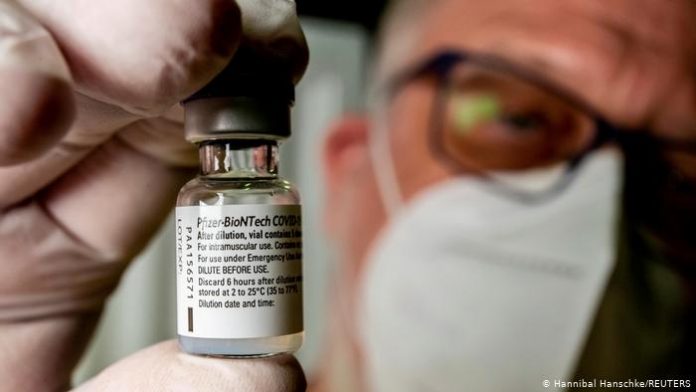Residents, employees and doctors at long-term care homes in Montreal will all have been given their first doses of the COVID-19 vaccine by next week, the city’s director of health-care institutions announced on Wednesday.
Sonia Bélanger made the announcement at an afternoon news conference alongside public health director Dr. Mylène Drouin and Mayor Valérie Plante in the city’s first COVID-19 update of the year.
“By next week, all residents of CHSLDs in Montreal, employees and doctors will have been vaccinated,” Bélanger said, adding that about 8,000 vaccines have been administered to residents and 12,000 to health-care workers so far.
Wrapping up vaccines at long-term care homes means the city will start vaccinating health-care workers in other environments in the coming days.
Despite the “good news,” Bélanger expressed concern over a rising number of cases in the city’s long-term care homes following the holidays. As of Wednesday, there were more than 100 outbreaks in public and private care homes across the island.
“The situation in CHSLDs has deteriorated over the holiday period,” Bélanger said. “This is worrisome; our infection prevention teams will continue to follow the situation closely to prevent the virus from spreading in those settings.”
There are currently 311 active outbreaks of COVID-19 in Montreal, 137 of which are in the health-care network, including long-term care homes. Montreal public health is calling 72 of them “major,” meaning they involve more than 10 cases, and the test positivity rate in the city currently stands at 12 per cent.
“I wish we had better news because once again, Montreal is the epicentre of the pandemic and the situation in hospitals is very difficult,” Plante said.
Bélanger called the situation in CHSLDs a reflection of what’s happening in the rest of the city.
“We can’t forget that CHSLDs are a living environment,” she said.
One of the long-term care homes dealing with an outbreak is Maimonides Geriatric Centre, where seven residents who received their first dose of the COVID-19 vaccine in December have since tested positive, though it’s unclear why.
“I think there’s a couple of hypotheses that are currently being studied,” Drouin said. One of those hypotheses is whether residents could have caught a new variant of the virus.
“It is a small number to draw a conclusion (from) at the time we’re speaking,” Drouin said, pointing out that a single dose of the vaccine is not 100 per cent effective in immunizing people to COVID-19.
On Wednesday, Quebec’s national public health institute (INSPQ) said that only one case of the U.K. variant has been detected so far in Quebec. That case was found in a person whose family member had come back from a trip to the U.K. on Dec. 11. The person tested positive two days later.
“We’re looking also at immunity in older persons,” Drouin said.
As of Wednesday, 83,210 people have tested positive for COVID-19 in Montreal since the start of the pandemic and 4,001 of them have died. Wednesday’s updated data also shows that 744 people are currently being treated for COVID-19 in Montreal hospitals, including 117 in intensive care.
The hardest-hit areas are Parc-Extension, St-Léonard, St-Michel, St-Laurent and Ahuntsic-Cartierville, Drouin said.
Despite a decrease in new cases on the island over the past few days, Drouin is cautioning against any assumptions that the city is headed in the right direction.
“The past few weeks weren’t that encouraging for Montreal,” she said. “We have really seen an increase in our incidence rates since mid-December, which really brings us to record levels in terms of the number of new cases, even compared to the first wave.”
One of the current challenges in the city’s fight against the pandemic is that fewer and fewer people are going to get tested. In fact, public health investigations have found that people with minor symptoms are still going to work.
“Even if it is small symptoms, it’s important to go get tested as soon as possible,” Drouin said, adding that there’s “no other virus” in Montreal at the moment.
The positivity rate for people showing symptoms is one out of four in general, and one out of two in the city’s hotspots, Drouin said.
“If you have symptoms, go get screened immediately. It’s not the time to go to work, to go to school, to go grocery shopping.”
Public health has found that there’s an average delay of 2.7 days between the time a person starts showing symptoms and when they decide to get tested, a delay Drouin called “significant.”
































